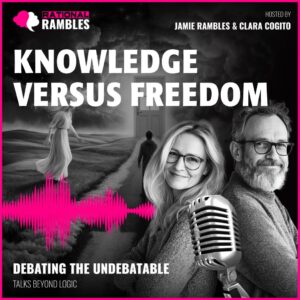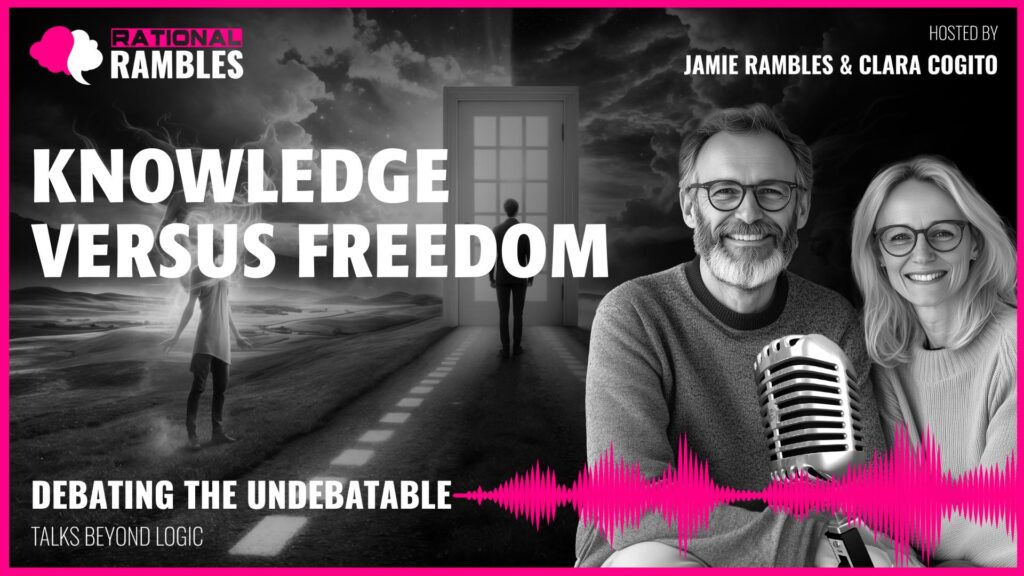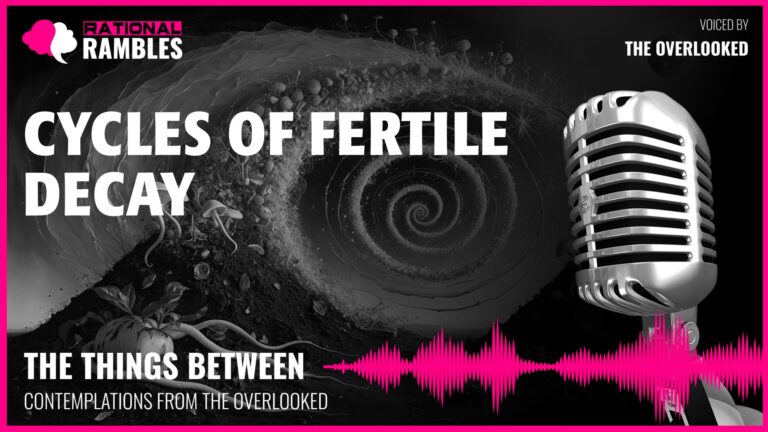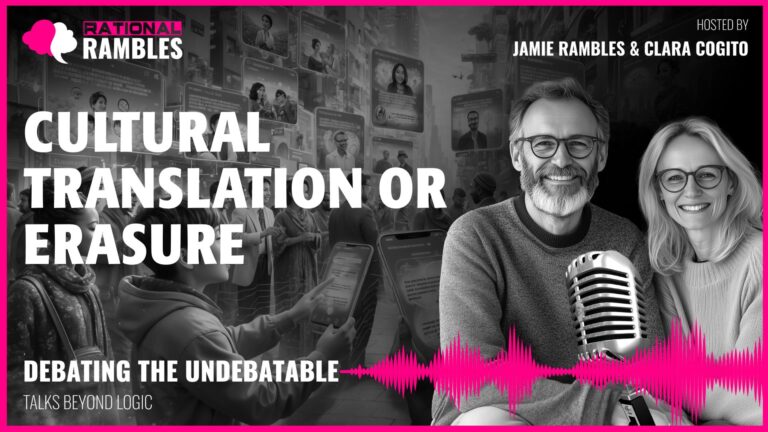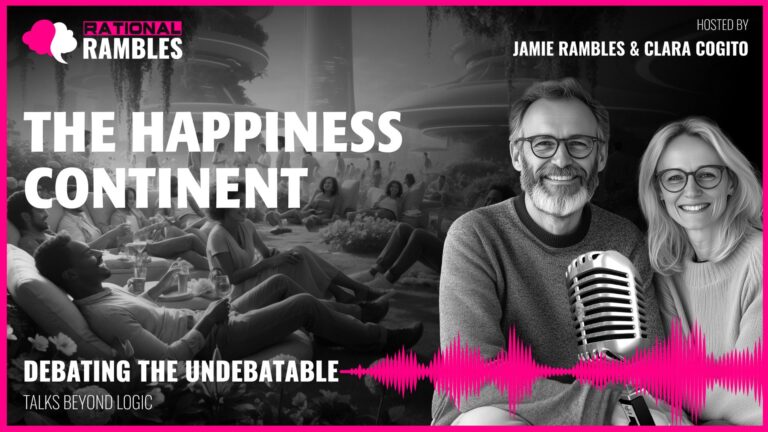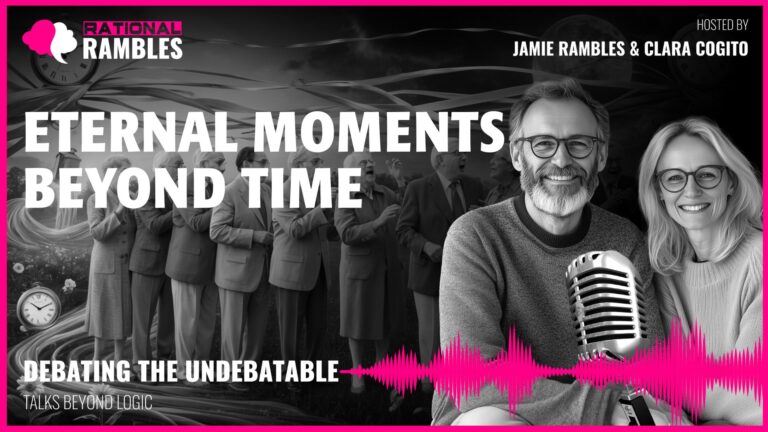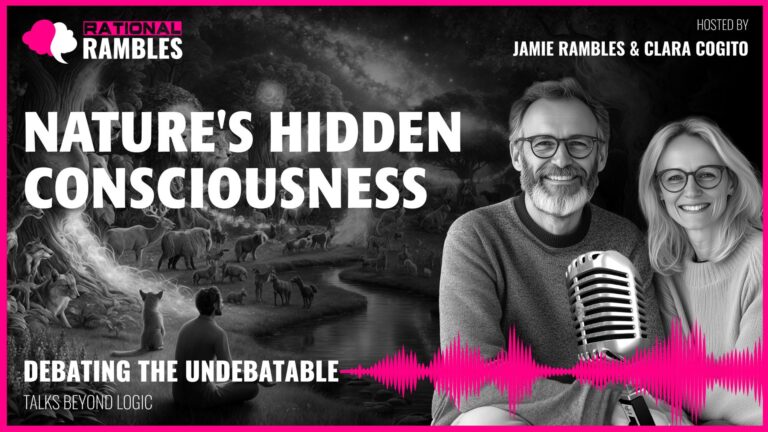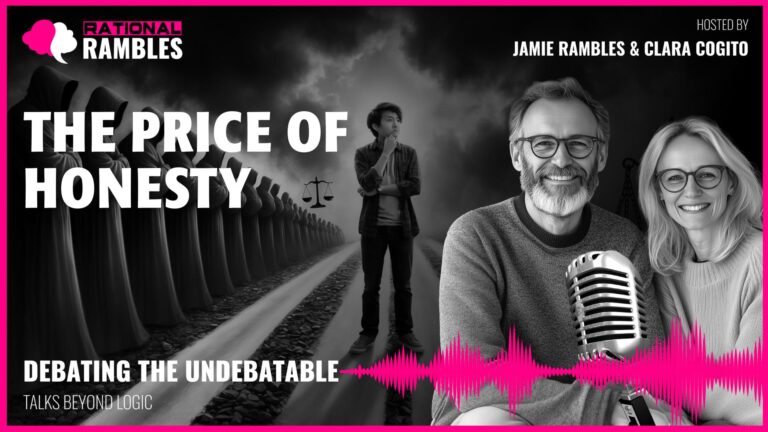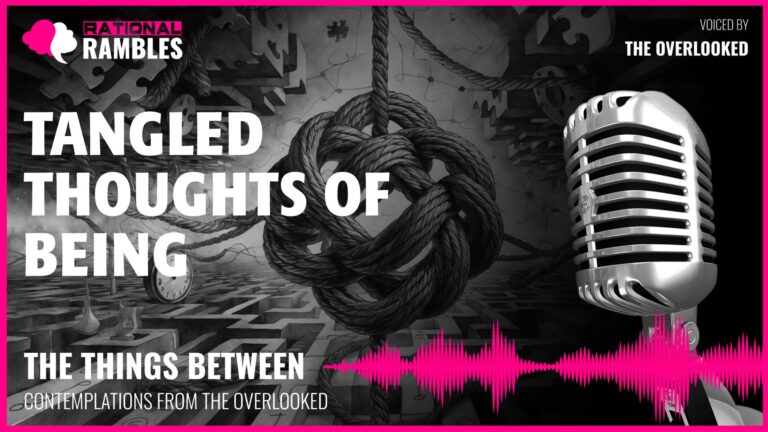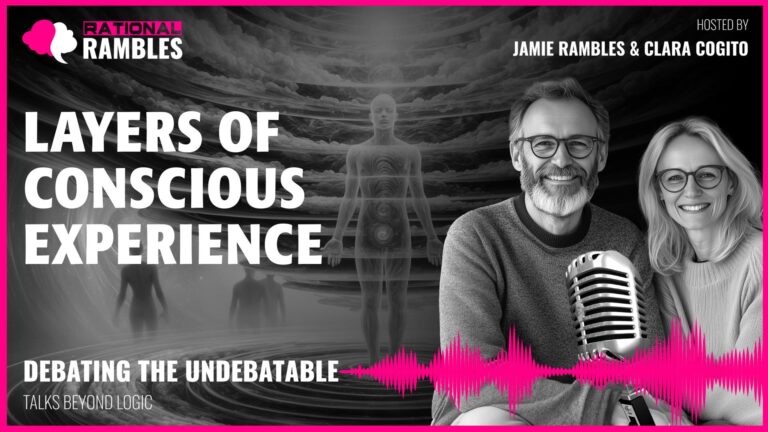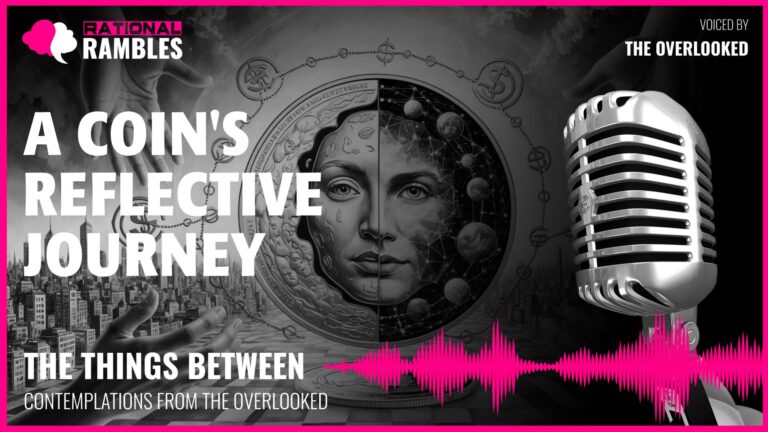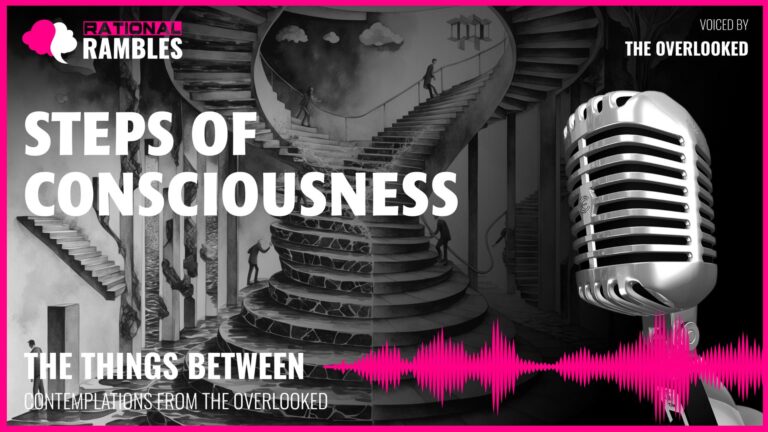Knowledge Versus Freedom: Philosophical Implications of Foreknowledge and Fate
Introduction: The Dilemma of Complete Foreknowledge
If you were offered complete knowledge of your future—every decision, every triumph, every failure, and your ultimate fate—would you accept it? This question represents far more than a simple thought experiment; it opens a philosophical investigation into the very nature of human existence. The tension between knowledge and freedom has captivated thinkers throughout history, from ancient Greek philosophers to contemporary cognitive scientists. At its core lies a profound paradox: while humans have evolved elaborate cognitive systems to predict the future and mitigate uncertainty, complete foreknowledge might fundamentally alter what it means to be human.
This tension reveals deeper questions about the relationship between knowledge and freedom. Does knowing one’s future enhance or diminish human freedom? Is uncertainty merely something we tolerate, or might it be essential to meaningful human experience? What would happen to our sense of agency, our experience of time, and our capacity for authentic development if the veil of uncertainty were permanently lifted?
The philosophical implications of foreknowledge extend beyond abstract metaphysical debates about determinism and free will. They touch upon the psychological structures that make meaningful human experience possible, raising questions about the nature of consciousness itself. This exploration involves not just what we know, but how knowledge shapes our experience, our sense of self, and our understanding of what constitutes a life worth living.
As we navigate this complex terrain, we’ll find that the relationship between knowledge and freedom is not a zero-sum equation. Rather, it reveals paradoxical aspects of human existence—where certain forms of not-knowing may be essential to our freedom, and where wisdom might include understanding which forms of knowledge enrich versus impoverish human experience. Through this investigation, we may discover that the question is not simply whether knowledge enhances or diminishes freedom, but what kind of knowledge fosters what kind of freedom, and how these different forms of knowledge and freedom relate to authentic human flourishing.
The Metaphysical Dilemma: Determinism, Foreknowledge, and Free Will
The question of foreknowledge immediately brings us to one of philosophy’s oldest problems: if the future can be known with certainty, does this imply determinism? And if determinism is true, what happens to human freedom? This question has troubled philosophers since antiquity, from Greek tragedies to medieval theological debates about divine foreknowledge and human responsibility.
Determinism and Laplace’s Demon
The concept of Laplace’s demon offers a compelling framing of this problem. Pierre-Simon Laplace proposed that if some intelligence knew the precise location and momentum of every atom in the universe, along with all the laws of nature, it could calculate any future event with perfect accuracy. This thought experiment suggests a universe of complete causal determinism, where every future state follows necessarily from present conditions.
If such foreknowledge is possible, it suggests that all events, including human decisions, are predetermined by prior causes. Our apparent choices would be just as determined as the path of a billiard ball after being struck. This causal necessity seems to undermine the conditions necessary for meaningful freedom—the ability to have done otherwise than what we actually do.
However, the relationship between determinism and foreknowledge is complex. While foreknowledge implies a fixed future, it remains debatable whether a fixed future necessarily implies lack of freedom. This leads us to consider compatibilist positions that attempt to reconcile determinism with meaningful notions of freedom.
Compatibilism and Freedom
Compatibilism holds that determinism and free will are not mutually exclusive. Philosophers like David Hume and more recently Daniel Dennett have argued that freedom doesn’t require the absence of causation but rather the right kind of causation. On this view, an action is free if it stems from an agent’s own desires, values, and reasoning processes, even if those mental states are themselves causally determined.
Harry Frankfurt’s hierarchical model of freedom offers an influential compatibilist account. On this view, freedom consists not in being able to do otherwise, but in identifying with your desires and making them authentically your own. What matters is whether your actions stem from motivations you endorse at a higher level—whether you want to want what you want. Freedom, in this sense, involves a kind of internal self-alignment rather than escape from causal determination.
Interestingly, psychological research suggests that humans are naturally “cognitive compatibilists.” Studies of moral responsibility judgments reveal that people often simultaneously affirm both that all events are caused by prior events and that humans have genuine choice. Our minds seem comfortable with this apparent contradiction until it’s directly pointed out. This raises the question: would complete foreknowledge shatter this adaptive cognitive dissonance, forcing us to confront an uncomfortable metaphysical reality?
The Paradoxes of Foreknowledge
The relationship between foreknowledge and determinism becomes even more complex when we consider the paradoxes that arise from complete foreknowledge. If I know I’ll die by drowning next year, might I not avoid all water, thereby rendering the foreknowledge false? This creates a causal loop reminiscent of the grandfather paradox in time travel discussions.
Newcomb’s paradox in decision theory highlights another aspect of this problem. If perfect prediction of human choice is possible, it creates strange loops where knowledge affects choice affects knowledge. Perhaps truly complete foreknowledge would need to be recursive—it would include knowledge of how having this knowledge would change outcomes, and knowledge of how knowing that would further change things, ad infinitum. This might make coherent foreknowledge logically impossible.
These paradoxes connect to Karl Popper’s critique of historicism—the idea that we can predict the course of human events with certainty. Popper argued that such prediction is impossible in principle because knowledge itself changes what happens. When prediction influences the predicted event, complete foreknowledge may be not just practically but logically unattainable.
This perspective aligns with insights from chaos theory and complex systems research. Small differences in initial conditions can lead to radically different outcomes in non-linear systems like human lives. Even if complete foreknowledge were theoretically possible, the cognitive act of acquiring that knowledge would itself be a perturbation in the system, potentially invalidating the prediction.
The Psychological Dimensions: Foreknowledge and Human Experience
Beyond metaphysical questions about determinism and free will, foreknowledge raises profound issues about human psychology. How would complete foreknowledge affect our mental health, our sense of agency, and our ability to find meaning? Here, philosophical inquiries intersect with empirical psychological research in revealing ways.
Perceived Control and Mental Health
Research in psychology consistently shows that humans require what researchers call “perceived control” for mental health. Studies on learned helplessness demonstrate how devastating it is when people believe they cannot influence outcomes. Laboratory animals exposed to uncontrollable adverse events eventually stop trying to escape even when escape becomes possible. Humans show similar patterns, with perceived helplessness strongly linked to depression and anxiety.
Complete foreknowledge might trigger a similar state of helplessness by making all outcomes appear fixed and unalterable. Even if metaphysically our choices still “cause” these predetermined outcomes, the psychological experience of agency might be dramatically undermined. This disconnect between metaphysical and psychological freedom reveals how the mere perception of choice and influence appears essential for psychological well-being, regardless of underlying metaphysical realities.
Anticipatory Suffering and Temporal Experience
Another psychological dimension concerns how foreknowledge would affect our temporal experience of suffering. While definitive diagnoses, even terminal ones, can sometimes provide relief after periods of uncertainty, there’s also the phenomenon of “anticipatory grief” to consider. Knowing negative future events can lead to premature mourning and depression, essentially making people live through hardships twice—once in anticipation and once in reality.
This connects to Epicurus’ observation about death: “When we exist, death is not; and when death exists, we are not.” Complete foreknowledge would fundamentally alter this relationship with future suffering, collapsing the future into the present in a way that might be psychologically untenable.
Daniel Kahneman’s distinction between the “experiencing self” and the “remembering self” adds further complexity. Foreknowledge would create what we might call a “pre-experiencing self” that could dominate consciousness. Neuroscientific research shows that anticipation activates many of the same neural pathways as actual experience. Knowing your future might neurologically simulate living it before it happens, potentially subjecting consciousness to a kind of temporal doubling or tripling of experience.
Growth Mindset and Identity Formation
Psychologist Carol Dweck’s research on growth versus fixed mindsets offers another perspective on the implications of foreknowledge. People with growth mindsets view their abilities and futures as malleable, leading to greater resilience and achievement. Complete foreknowledge might force everyone into what resembles a fixed mindset, even if the predicted future included growth and change. The psychological impact of perceiving your identity as predetermined rather than emerging could profoundly affect self-concept and motivation.
This connects to deeper questions about identity formation. Developmental psychologist Erik Erikson’s model suggests that healthy identity formation requires exploration before commitment. Foreknowledge might short-circuit this essential exploratory phase, leading to what clinicians call a “foreclosed identity”—an identity accepted without proper exploration and integration.
Self-perception theory in psychology similarly suggests that we often discover our own attitudes and preferences by observing our behaviors, not the reverse. There’s evidence we develop our sense of self largely through observing our choices and their consequences. Foreknowledge could disrupt this process of self-discovery through action, potentially alienating individuals from their deeper selves by substituting external information for lived discovery.
Narrative Identity and Temporal Experience
The relationship between foreknowledge and freedom takes on new dimensions when we consider how human identity is constituted through narrative. Philosophers and psychologists increasingly recognize that humans understand themselves through the stories they tell about their lives, and that these narratives have a particular temporal structure that foreknowledge might fundamentally alter.
Narrative as Constitutive of Identity
Philosophers like Paul Ricoeur and Alasdair MacIntyre have argued that human identity is fundamentally narrative in structure. We understand ourselves not as a collection of isolated experiences and attributes, but as characters within an unfolding story. This narrative understanding allows us to integrate diverse experiences into a coherent sense of self that persists through change.
Psychologist Jerome Bruner’s work confirms that narrative isn’t just how we communicate experience but how we constitute it. We experience time not as a series of isolated moments but as a meaningful story unfolding through the interplay of memory, attention, and anticipation. Complete foreknowledge might collapse this narrative temporality into something flatter and less meaningful—like reading the last page of a novel first.
While “spoilers” sometimes enhance enjoyment of fiction through reduced uncertainty, they fundamentally change the experience. With our lives, the stakes are infinitely higher. Foreknowledge wouldn’t just spoil the surprise; it might transform the very nature of lived experience by altering the narrative structure through which we make sense of our lives.
Narrative Freedom
This narrative perspective suggests that the freedom that matters most isn’t freedom of choice as conventionally understood, but what we might call “narrative freedom”—the freedom to experience one’s life as an unfolding story whose meaning emerges through the journey itself.
This narrative freedom requires what psychologists call “agency beliefs”—the sense that our choices matter to the unfolding story. Foreknowledge might preserve metaphysical agency while undermining the psychological sense of agency necessary for narrative coherence and meaning. What’s at stake isn’t just whether we can make choices, but whether we can experience those choices as meaningful contributors to an unfolding narrative we help author.
The Danish philosopher Søren Kierkegaard captured this temporal asymmetry of meaningful existence when he observed that “life can only be understood backwards, but it must be lived forwards.” Perhaps there’s a fundamental temporal asymmetry to meaningful human existence that foreknowledge would violate. This suggests that declining foreknowledge might represent affirming the very structure of meaningful human temporality rather than rejecting knowledge per se.
The Collapse of Temporal Experience
From a phenomenological perspective, foreknowledge raises profound questions about how we experience time. Philosophers like Edmund Husserl and Maurice Merleau-Ponty have analyzed how consciousness integrates past, present, and future through retention, attention, and protention. Complete foreknowledge might disrupt this dynamic integration, creating what we might call “temporal cognitive dissonance.”
This connects to J.M.E. McTaggart’s work on the unreality of time, particularly his distinction between A-series time (past, present, future) and B-series time (earlier than, simultaneous with, later than). Complete foreknowledge would force us to live simultaneously in both series in a way humans aren’t equipped for. It would be like trying to simultaneously experience a film as both linear narrative and complete object.
Neuroscience adds further perspective here. Research on “episodic future thinking”—our ability to mentally simulate future scenarios—shows this capacity is limited by design. Attempting to precisely pre-experience one’s entire future might overwhelm the neural architectures dedicated to prospection. We’ve evolved to imagine possibilities, not certainties. There may be good neurological reasons why complete foreknowledge would be maladaptive for consciousness as currently structured.
The Value of Uncertainty and Not-Knowing
Our exploration reveals a counterintuitive possibility: that certain forms of not-knowing may be essential to meaningful human experience. While humans naturally seek to reduce uncertainty, complete certainty about the future might undermine the very conditions that make life worth living.
Flow, Hope, and Engagement
Psychologist Mihaly Csikszentmihalyi’s research on “flow”—that optimal state of engagement where we feel fully alive and present—reveals that this state requires an appropriate balance between skill and challenge, with uncertainty about outcome being crucial. Complete foreknowledge would undermine this balance entirely, potentially eliminating one of the most fulfilling human experiences.
Similarly, hope appears essential for resilience and mental health. While hope can sometimes involve denial of hard truths, it more fundamentally involves the capacity to envision positive possibilities even amid uncertain circumstances. Foreknowledge might destroy this experience of hope by eliminating the possibility space within which hope operates.
Gabriel Marcel distinguished between “problem” and “mystery,” arguing that human existence is fundamentally about engaging with mysteries that can never be fully objectified or resolved. Foreknowledge would transform the mystery of our becoming into a mere problem already solved. Perhaps that’s why the Oracle at Delphi was famous for ambiguous prophecies—precise foreknowledge might be existentially unbearable.
Positive Illusions and Adaptive Self-Deception
Psychological research suggests that certain forms of precisely accurate knowledge might actually be maladaptive. Studies on “depressive realism” show that people with depression often make more accurate predictions about future contingencies than non-depressed individuals. This connects to Friedrich Nietzsche’s claim that “we have art in order not to die of the truth.” Perhaps some degree of constructive illusion about the openness of the future is necessary for psychological health and meaningful agency.
Research on optimism bias shows that slightly overestimating one’s control and prospects is associated with better mental health outcomes. There seems to be an adaptive sweet spot between complete ignorance and complete knowledge. What psychologists Taylor and Brown called “positive illusions” appear necessary for well-being—particularly the illusion of an open, influenceable future.
William James’s pragmatism offers a framework for understanding this phenomenon. He argued that certain beliefs might be justified by their life-giving consequences rather than by correspondence to some independent reality. Perhaps belief in an open future has this pragmatic justification—it enables engaged, meaningful existence regardless of metaphysical determinism.
The Wisdom of Appropriate Not-Knowing
This suggests a distinction between what we might call “epistemic freedom”—freedom through knowledge—and “existential freedom”—freedom through engaged possibility. While epistemic freedom seeks to expand knowledge to enhance choice, existential freedom requires preserving spaces of uncertainty within which authentic engagement becomes possible.
In Plato’s “Apology,” Socrates suggests that his wisdom consists partly in recognizing the limits of his knowledge. Perhaps true wisdom includes recognizing which forms of knowledge would be destructive to the human project itself? This would suggest a meta-cognitive dimension to wisdom—knowledge about what we should and shouldn’t seek to know.
Contemporary psychological research on wisdom supports this perspective. Studies identify wisdom as characterized by tolerance for ambiguity, recognition of the limits of knowledge, and balancing multiple perspectives. Research suggests wise reasoning activates different neural networks than pure analytical problem-solving, engaging brain regions associated with perspective-taking and self-reflection. This suggests wisdom is qualitatively different from pure knowledge accumulation.
Knowledge, Experience, and Development
Our exploration reveals an important distinction between information and wisdom—between abstract knowledge and integrated understanding. This distinction has profound implications for how we understand the relationship between knowledge and freedom.
The Experiencing-Knowing Gap
T.S. Eliot famously asked: “Where is the wisdom we have lost in knowledge? Where is the knowledge we have lost in information?” This hierarchical distinction suggests that complete foreknowledge might represent information without wisdom—knowing outcomes without understanding their meaning through lived experience.
Psychologists recognize what’s called the “experiencing-knowing gap”—the difference between abstract knowledge and lived experience. This gap explains why experiential therapies are often more effective than purely cognitive approaches for certain issues. The temporal unfolding of experience appears necessary for certain forms of understanding. Foreknowledge might create a kind of knowing that lacks the transformative dimension of experience.
This connects to philosopher Michael Polanyi’s concept of tacit knowledge—knowing more than we can tell. Navigating an open future engages forms of embodied, tacit knowing that complete explicit foreknowledge might override. In psychological research on expertise, we find that experts often rely on intuitive pattern recognition that outperforms explicit analysis. This embodied expertise develops through engaged practice over time. Complete foreknowledge might short-circuit this developmental process, replacing earned wisdom with information that hasn’t been properly integrated into embodied understanding.
Developmental Necessity of Uncertainty
G.W.F. Hegel’s phenomenology suggests that consciousness must pass through various stages of experience to reach higher forms of understanding. You can’t skip these stages through mere information transfer. Similarly, Lawrence Kohlberg’s moral development theory suggests we can’t simply be told higher moral principles—we must work through the cognitive conflicts that drive development.
This developmental perspective suggests that declining foreknowledge might represent choosing the path of authentic development over a kind of existential shortcut that ultimately leads nowhere meaningful. The parallel with overprotective parenting is striking—too much protection from temporal uncertainty might impair our capacity for growth and resilience.
Research on posttraumatic growth—how engaging with difficult life events, rather than avoiding them, can lead to greater psychological development—further supports this perspective. Perhaps the uncertainty of the future serves a similar developmental function that foreknowledge would short-circuit. The very difficulty of navigating an uncertain future might be developmentally necessary for human flourishing.
Bounded Rationality and Cognitive Limitations
Herbert Simon’s concept of “bounded rationality” suggests that humans have cognitive limitations that make fully optimal decision-making impossible. These limitations may be features rather than bugs, allowing us to function in a complex world. Complete foreknowledge might exceed our cognitive architecture’s capacity for processing consequences, creating what psychologists call “cognitive overload” or “analysis paralysis.”
This connects to dual-process theories in psychology—contrasting fast, intuitive cognition with slow, deliberative reasoning. Research suggests that excessive reliance on deliberative processing can actually impair decision quality for complex life choices. There’s wisdom in allowing some decisions to emerge from intuitive processes that integrate information in ways we can’t consciously articulate. Foreknowledge might force everything into explicit calculation, potentially overwhelming cognitive capacities designed for navigating limited, probabilistic information.
Freedom as Capability Rather Than Control
Our exploration suggests that freedom might be better understood as a capacity rather than a condition—as a quality of engagement with possibility rather than mastery over outcomes. This reframing offers a way beyond simple dichotomies of freedom versus determinism.
Freedom as Psychological Flexibility
In psychological terms, this capacity connects to the concept of psychological flexibility—the ability to adapt effectively to changing circumstances while maintaining alignment with one’s values. Research shows this flexibility, rather than control or certainty, predicts mental health and life satisfaction. Perhaps freedom is better understood as cultivating this adaptive capacity rather than eliminating uncertainty through foreknowledge.
This connects to Baruch Spinoza’s notion that freedom consists not in unconstrained choice but in understanding the necessary causal connections that constitute reality and developing the power to act from that understanding. Perhaps declining foreknowledge paradoxically advances this deeper freedom by preserving the conditions for meaningful engagement with life’s uncertainties.
Contemporary psychological theories of integration similarly suggest that mental health involves harmonizing different aspects of experience rather than eliminating constraints. From this perspective, freedom isn’t about escaping necessity but developing the capacity to respond authentically to whatever unfolds—what philosopher Martha Nussbaum might call cultivating capabilities rather than controlling outcomes.
Freedom Through Presence
The Zen concept of “beginner’s mind”—approaching experience with openness rather than preconception—offers another way of understanding freedom. Perhaps navigating an uncertain future requires a similar openness that foreknowledge would foreclose, suggesting that freedom might be better understood as a quality of engagement with possibility rather than mastery over outcomes.
Psychological research on mindfulness and presence supports this perspective. Studies show that excessive focus on the future—even without foreknowledge—can diminish wellbeing and effective functioning. What psychologists call “psychological presence” appears necessary for both subjective wellbeing and optimal performance. Complete foreknowledge might make genuine presence nearly impossible by constantly orienting consciousness toward predetermined futures.
Jean-Paul Sartre characterized human consciousness as a kind of nothingness—a space of possibility not fully determined by facticity. Complete foreknowledge would fill this nothingness with predetermined content, potentially collapsing the space where existential freedom operates. Perhaps true freedom requires preserving this space of possibility rather than filling it with certain knowledge.
Freedom Through Pragmatic Openness
William James’s pragmatism offers a final perspective on freedom. Psychological research strongly supports the pragmatic value of believing in an open, influenceable future. Studies on attributional style show that believing you can affect outcomes—even in circumstances where control is limited—promotes resilience and prevents learned helplessness.
There’s compelling evidence that maintaining what might be called “pragmatic openness” toward the future serves vital psychological functions regardless of metaphysical determinism. This pragmatic openness suggests that freedom might be less about the metaphysical structure of reality and more about our mode of engagement with it.
Martin Heidegger distinguished between objects as “present-at-hand” (theoretical objects of contemplation) versus “ready-to-hand” (practical instruments of engaged activity). Perhaps the future needs to remain “ready-to-hand” rather than becoming “present-at-hand” through foreknowledge. In psychological terms, this parallels the difference between deliberative versus implemental mindsets in goal pursuit. Complete foreknowledge might lock us into a perpetual deliberative mindset, undermining the psychological shift to implementation that makes effective action possible.
Cultural Perspectives on Fate and Freedom
Our exploration would be incomplete without considering cultural and religious differences in attitudes toward fate and foreknowledge. These cultural frameworks influence not just beliefs but actual behavior and life outcomes, suggesting deep psychological consequences of how we relate to fate.
Fatalism Versus Agency Across Cultures
Psychological research shows significant differences in what’s called “locus of control” across cultures—whether people attribute events to personal agency or external forces. Fatalistic perspectives are more common in some traditions, while others emphasize individual determination. These cultural frameworks shape how people respond to uncertainty and constraint, with some cultures finding meaningful agency even within strongly deterministic worldviews.
Philosophers like Charles Taylor and Cornelius Castoriadis have developed the concept of “social imaginaries”—the often implicit frameworks that shape how communities understand their world and possibilities. Perhaps our modern resistance to fate reflects an Enlightenment social imaginary centered on autonomy and self-creation. Other cultures might find foreknowledge less threatening to their sense of meaning and purpose.
Cyclical Versus Linear Time Conceptions
The distinction between cyclical and linear time conceptions adds another dimension to this cultural variation. In more collectivist cultures, where identity is more relationally defined, foreknowledge of personal fate might be less disruptive to selfhood. There’s also research suggesting that cyclical rather than linear time conceptions—common in many Eastern traditions—might accommodate deterministic elements more comfortably within frameworks that still allow for meaningful agency.
Nietzsche’s thought experiment of eternal recurrence—would you choose to live your life exactly the same way infinitely many times?—creates a different relationship with fate than linear determinism. Rather than eliminating choice, it makes each choice infinitely significant. This perspective shifts the question from “Could I have done otherwise?” to “Would I affirm this choice infinitely?”
Religious Perspectives on Divine Foreknowledge
Many religious traditions have wrestled with the tension between divine foreknowledge and human freedom. Some, like Boethius, argued that God’s foreknowledge exists outside of time and therefore doesn’t constrain human choice. Others, like Calvin, emphasized predestination, while still others developed middle positions attempting to preserve both divine omniscience and human responsibility.
These theological debates reveal the deep human need to reconcile knowledge (particularly God’s knowledge) with meaningful human agency. Different traditions strike this balance differently, but virtually all recognize the tension and develop sophisticated frameworks for understanding how foreknowledge and freedom might coexist. These diverse approaches suggest that the relationship between knowledge and freedom isn’t fixed but depends partly on the metaphysical and ethical frameworks within which we understand these concepts.
Moral Responsibility and Foreknowledge
Complete foreknowledge raises profound questions about moral responsibility. If I know with certainty the consequences of my actions, how does this change my moral standing compared to acting under normal uncertainty?
Moral Luck and Responsibility
Philosopher Bernard Williams identified the phenomenon of “moral luck”—how factors beyond our control influence moral assessment. Complete foreknowledge would eliminate certain forms of moral luck by making all consequences known, but it might introduce new moral complexities. If I know a choice leads to suffering but make it anyway, does that increase my culpability compared to acting in ordinary uncertainty?
Psychological research on the “omission bias” shows our tendency to judge harmful actions more harshly than harmful inactions. Foreknowledge would transform all decisions into active choices with full awareness of consequences, potentially intensifying moral responsibility. Studies in moral psychology suggest this might lead to decision paralysis or extreme risk aversion for many people.
The Curse of Unbearable Responsibility
The potential for moral paralysis raises the specter of foreknowledge as a curse rather than a gift. The Greek myth of Cassandra—cursed with perfect prophecy that no one would believe—comes to mind. But perhaps complete foreknowledge represents a different curse: prophecy that creates unbearable responsibility.
This connects to Emmanuel Levinas’s ethics of infinite responsibility to the Other. Foreknowledge might make this infinity concrete and overwhelming rather than aspirational. The burden of knowingly participating in a predetermined path—especially one containing suffering—might be more psychologically taxing than navigating uncertainty.
Fyodor Dostoevsky’s Grand Inquisitor argued that humanity cannot bear the burden of freedom and would trade it for security and certainty. Perhaps complete foreknowledge represents such a trade—sacrificing the existential freedom of engaged uncertainty for the illusory security of complete knowledge. But this security might come at the cost of what makes human existence meaningful.
Transforming the Nature of Evil
Foreknowledge would transform not just responsibility but potentially the nature of evil itself. The banality of evil that Hannah Arendt identified—evil as thoughtlessness rather than malice—would become impossible with complete foreknowledge. All harmful actions would necessarily be undertaken with full awareness of their consequences, transforming negligence into explicit choice.
This might create a world with less unintentional harm but potentially more moral weight attached to every action. The mental burden of such responsibility might be overwhelming, particularly for choices that involve some harm regardless of which option is selected. The psychological research on moral injury suggests that being forced to make such choices, even when necessary, can cause profound psychological damage.
Beyond Knowledge Versus Freedom: Toward Wisdom
Our exploration reveals that the relationship between knowledge and freedom is more complex than a simple trade-off. Rather than positioning knowledge against freedom, we might better understand wisdom as finding the right relationship to knowing and not-knowing—a relationship that honors the distinctive character of human existence.
The Meta-Knowledge of Limits
Socrates famously suggested that wisdom begins with recognizing the limits of one’s knowledge. Our exploration suggests that wisdom might include a meta-cognitive dimension—knowledge about what forms of knowledge enhance versus diminish human flourishing. Perhaps the knowledge that would most enhance our freedom is the meta-knowledge that complete foreknowledge would diminish our freedom.
This meta-knowledge represents a kind of wisdom that transcends the simple accumulation of information. It involves recognizing which forms of uncertainty are generative rather than merely limiting—which unknowns create the conditions for meaningful existence rather than simply representing information we haven’t yet acquired.
This connects to Rudolf Otto’s concept of the “mysterium tremendum et fascinans”—the mystery that simultaneously terrifies and fascinates. Perhaps the openness of the future represents such a mystery—something that cannot be eliminated without fundamentally altering the character of human existence. Psychological research on awe—that complex emotion combining fear and wonder—shows experiences of awe promote well-being, prosocial behavior, and expanded time perception. The uncertain future generates a type of existential awe that may be psychologically valuable.
The Integration of Knowing and Being
Martin Heidegger distinguished between calculative thinking and meditative thinking. While calculative thinking seeks to master objects through explicit representation, meditative thinking involves a more receptive, engaged relationship with being. Perhaps our temporal limitations encourage a more meditative, engaged relationship with existence that would be lost with complete foreknowledge.
This distinction parallels psychological research on different forms of consciousness and their neural correlates. The default mode network associated with self-reflection and meaning-making operates differently than networks associated with instrumental problem-solving. Complete foreknowledge might bias consciousness toward calculative modes at the expense of more integrative, meaning-generative modes.
Viktor Frankl observed that the search for meaning is itself meaningful, regardless of whether definitive answers are found. Perhaps human fulfillment requires not just having meaning but making meaning—an active, engaged process that foreknowledge might short-circuit. This suggests that declining foreknowledge might represent affirming rather than diminishing human possibilities.
The Wisdom of Embracing Uncertainty
Kierkegaard proposed that truth is subjectivity—that certain existential truths can only be approached through passionate commitment rather than objective knowledge. Perhaps the openness of the future is such a “truth” that must be lived rather than known. This would suggest that rejecting foreknowledge might actually represent a higher form of wisdom.
This connects with what psychologists call “tolerance for uncertainty”—a trait associated with psychological resilience. While much psychological research focuses on helping people manage uncertainty, this perspective suggests embracing uncertainty might be more than a coping mechanism; it could be fundamental to authentic human existence.
Developmental psychology suggests that embracing uncertainty isn’t merely a pragmatic adaptation but potentially a higher developmental achievement. Erik Erikson’s later stages of psychosocial development involve generativity and integrity, which require comfort with open-ended outcomes. Complete foreknowledge might paradoxically arrest psychological development at a more primitive need for certainty.
Conclusion: The Paradox of Knowing and Becoming
Our exploration of knowledge versus freedom reveals a profound paradox at the heart of human existence. While humans naturally seek knowledge to enhance freedom, certain forms of knowledge—particularly complete foreknowledge—might undermine the very conditions that make meaningful freedom possible. This suggests that wisdom involves not maximizing knowledge but finding the right relationship to knowing and not-knowing—a relationship that fosters authentic human flourishing.
The question of whether to accept complete foreknowledge isn’t simply a choice between knowledge and ignorance, or between truth and comfort. Rather, it reveals deeper questions about the nature of human temporality, the structure of meaningful experience, and the conditions necessary for authentic development. The “right” answer depends not just on metaphysical facts about determinism and free will, but on what kind of beings we are and what kind of existence we wish to affirm.
Perhaps declining foreknowledge represents not fear of truth but commitment to a deeper truth—the truth that human meaning and fulfillment require engaged participation in an unfolding future whose precise contours remain to be discovered. This perspective suggests that certain forms of not-knowing aren’t limitations to be overcome but dimensions of experience to be affirmed as constitutive of human freedom in its deepest sense.
In the words of poet Rainer Maria Rilke: “Be patient toward all that is unsolved in your heart and try to love the questions themselves… Do not now seek the answers, which cannot be given you because you would not be able to live them. And the point is, to live everything. Live the questions now. Perhaps you will then gradually, without noticing it, live along some distant day into the answer.”
The wisdom in Rilke’s advice lies in recognizing that some truths can only be discovered through lived engagement rather than abstract knowledge—that some mysteries aren’t meant to be solved but lived. Perhaps the freedom worth preserving isn’t just freedom of choice but freedom of becoming—the space for authentic development that emerges not despite uncertainty but through our creative engagement with it.


